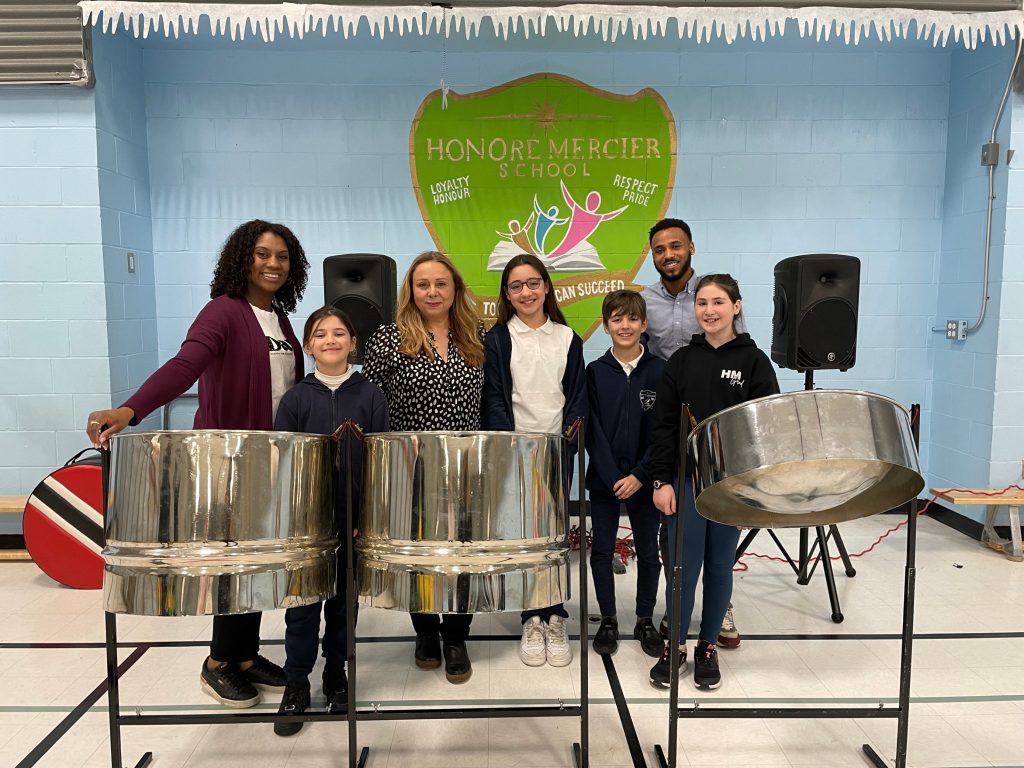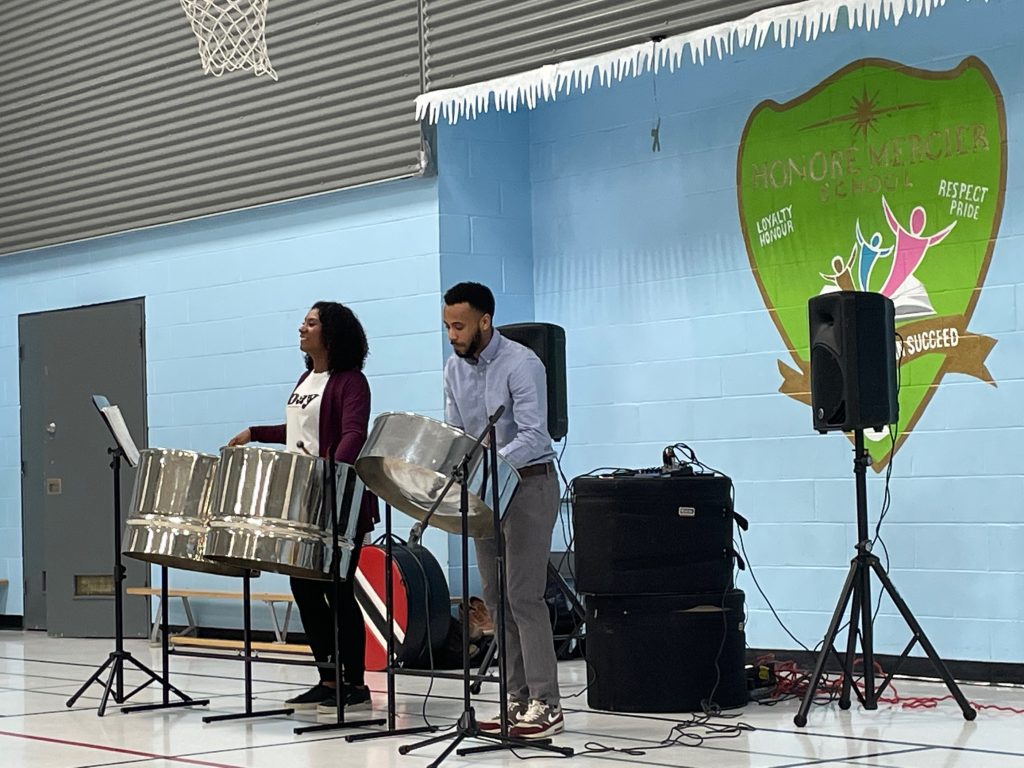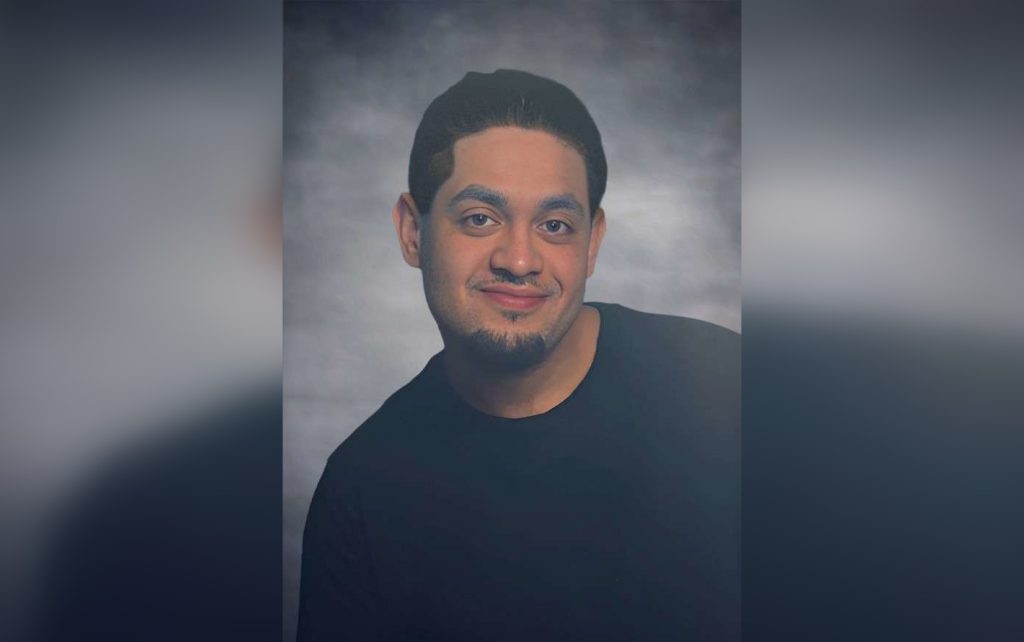Montreal students learn about Trinidadian steel pan as part of Black History Month

Posted February 22, 2023 4:17 pm.
Last Updated February 22, 2023 7:18 pm.
Montrealer Fatima Wilson trained on the saxophone when she was a high schooler in the West Island.
Now she’s touring schools for Black History Month, showcasing her skills on the steel pan – an instrument with its beginnings in Trinidad.
“We are asked to play for Black History Month and let everybody know about the history of the steel pan,” Wilson said.
“But it’s not only for the month of February, it should be throughout the year, once a month, maybe to expand the knowledge and to let everybody know that it’s not just February, the 28 days, that everybody should acknowledge the understanding of the history – not just of steel pan, but just in general.”
Students at Honoré Mercier Elementary on Wednesday took part in the performance – and the teachings.
“My favourite part of the performance was when everyone got together and got in a line and everyone did the line where everyone walks around the gym and it’s really cool. They should come to more schools,” one student told CityNews.
“I think it was amazing. I really enjoyed it a lot,” added another.
“They find very fun ways to teach us these things,” said a third.
Wilson was joined by her nephew Rashiyd Wilson, who learned to play the steel pans from his grandfather at a young age.
“You never really see this instrument too often around here in North America, and the impact it actually had on me playing from a young age is to be disciplined,” said Rashiyd. “I think music has that great effect on anybody. And this is a musical instrument. It comes from the Caribbean. It comes from where my family is from. So it’s something that I’m very proud of.”



Teaching about the instrument’s history is an important part of the school visits.
“It comes from a source of pain and suffering,” said Rashiyd. “People in Trinidad were not always free. And so there came a time where they were free and needed to create an instrument. And so that was the reason why the instrument actually ended up being created. So it was a need for expression to have celebration for being free.”
Wilson feels the steel pan deserves larger appeal.
“It’s a humbling experience because as I tell my students and I mentioned it in the assemblies, it wasn’t something that I appreciated when I was young,” she said. “And now growing up and seeing how it brings everybody together and it is not just an instrument for Blacks or anybody from the Caribbean, it’s something that can bring a lot of people together.”








